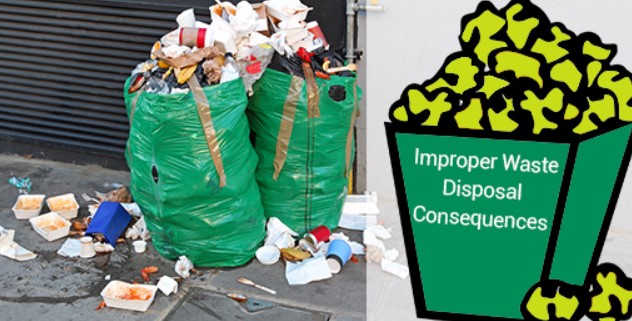How Is Waste Disposal Done in Germany?
During the past two decades, Germany has implemented a series of policies for waste management. These have improved recycling rates and enforced mandatory waste sorting. In addition, the country introduced the ‘Energiewende’ roadmap for a low-carbon energy transition. These efforts have helped shape public opinion regarding environmental issues.
Recycling
Germany has taken steps to ensure that its waste disposal practices are as environmentally friendly as possible. The country’s Waste Management Act outlines responsibilities for waste producers throughout the product life cycle and ensures that products can be recovered and disposed of in a sustainable way. Germany produces an estimated 325 to 350 million tons of waste per year. This waste is divided into three categories: municipal waste, construction and demolition waste, and hazardous waste.
Pollutant pays principle

In Germany, waste disposal is regulated under the ‘polluter pays principle’, which holds that the manufacturers responsible for a given waste have to pay the costs of removing that waste from the environment. This practice is based on the principle that society has a moral responsibility to reduce the amount of waste that it produces.
Germany has become a leader in recycling and waste management, and the nation’s policies have inspired other countries to adopt greener practices. The country has adopted three major strategies to combat its waste problem. These policies include a ban on single-use plastics and a deposit refund scheme. Additionally, the country has implemented a policy to encourage residents to reduce their carbon footprint by recycling more.
System of sorting waste
Recycling rates
Recycling rates in Germany are higher than those in other countries. The United States, for example, recycles just under 35% of its waste. Germany, on the other hand, recycles more than six out of every ten bottles and cans. In 2015, its recycling rate was 95.5 percent, an increase of nearly 10 percent from the year before.
Ban on plastic bags
The ban is an effort to reduce plastic pollution, which has become a huge environmental problem. It fouls our beaches, and creates gigantic floating garbage patches in the oceans. Furthermore, scientists warn that microplastic particles from plastic enter our food chains and eventually reach our bodies. This ban follows the
voluntary commitment of the retail industry in Germany to stop giving away free plastic bags, a move that has reduced the number of plastic bags per person.
Closed cycle system
In 2017, Germany’s closed-cycle waste disposal system was responsible for 84.1 billion euros in turnover and 310,000 jobs. This is almost as much as the energy industry. The closed-cycle system contributes a substantial amount to the German economy and requires close cooperation between all the players.
For more information: https://turbo-entsorgung.de/
